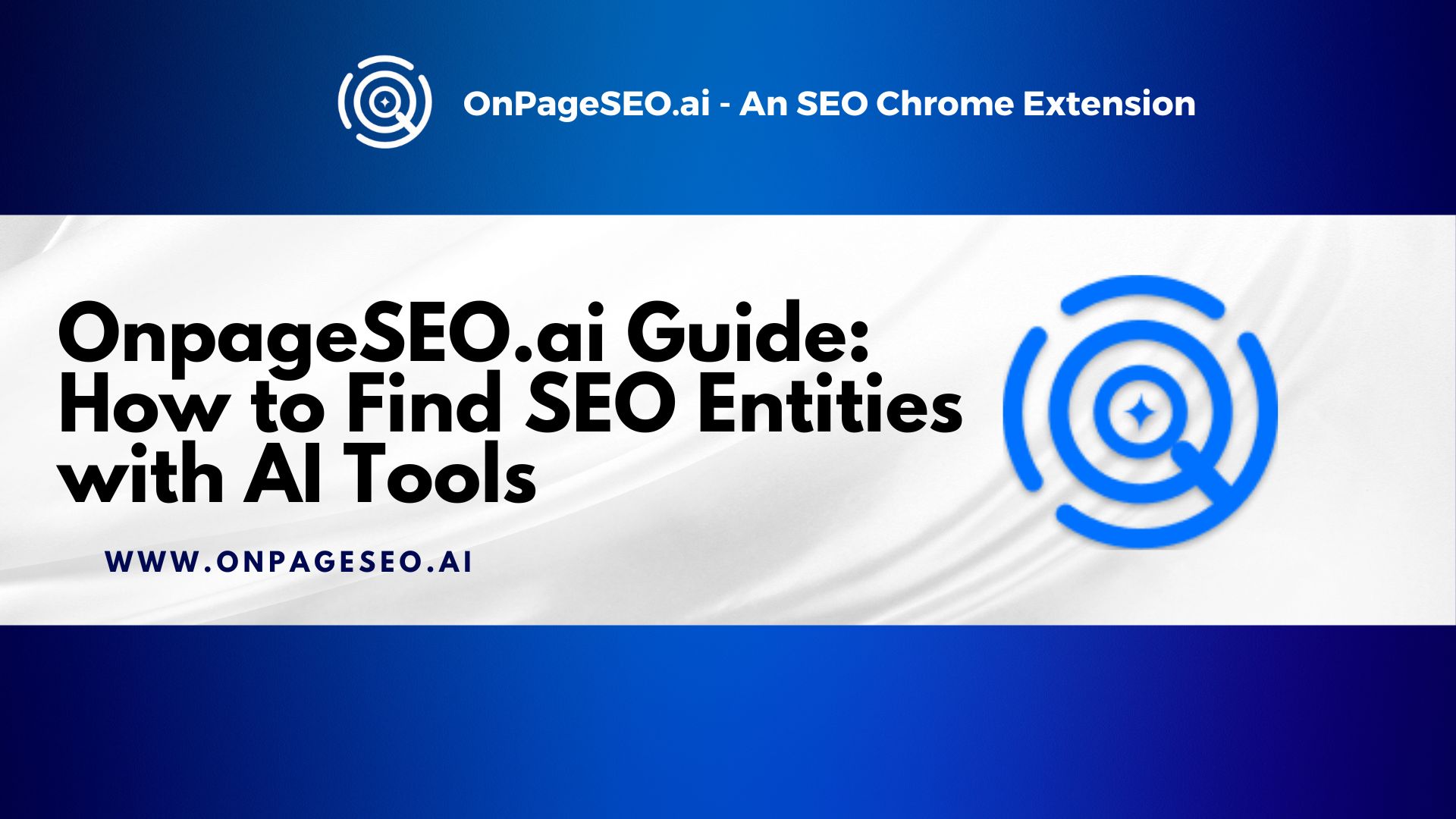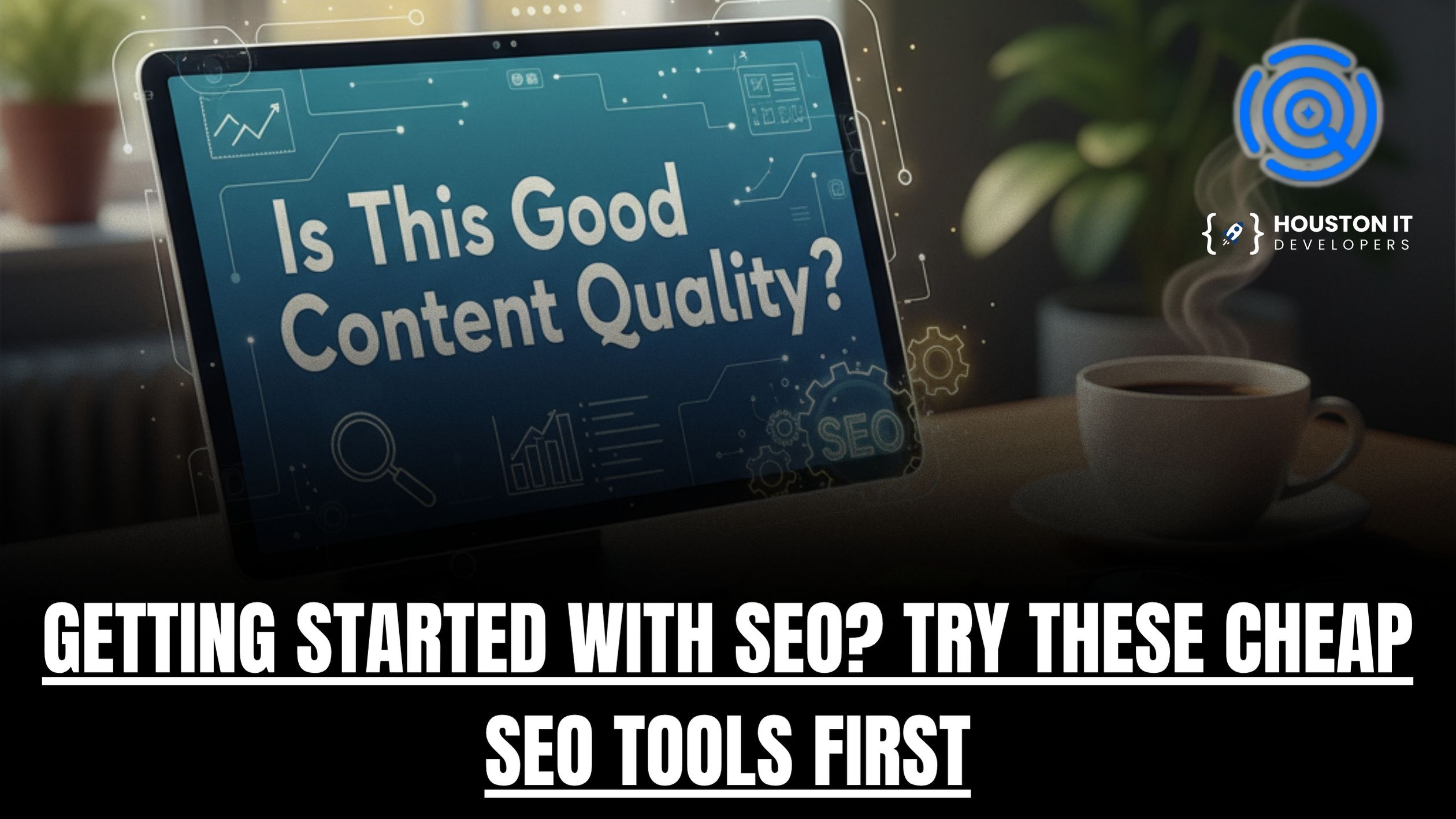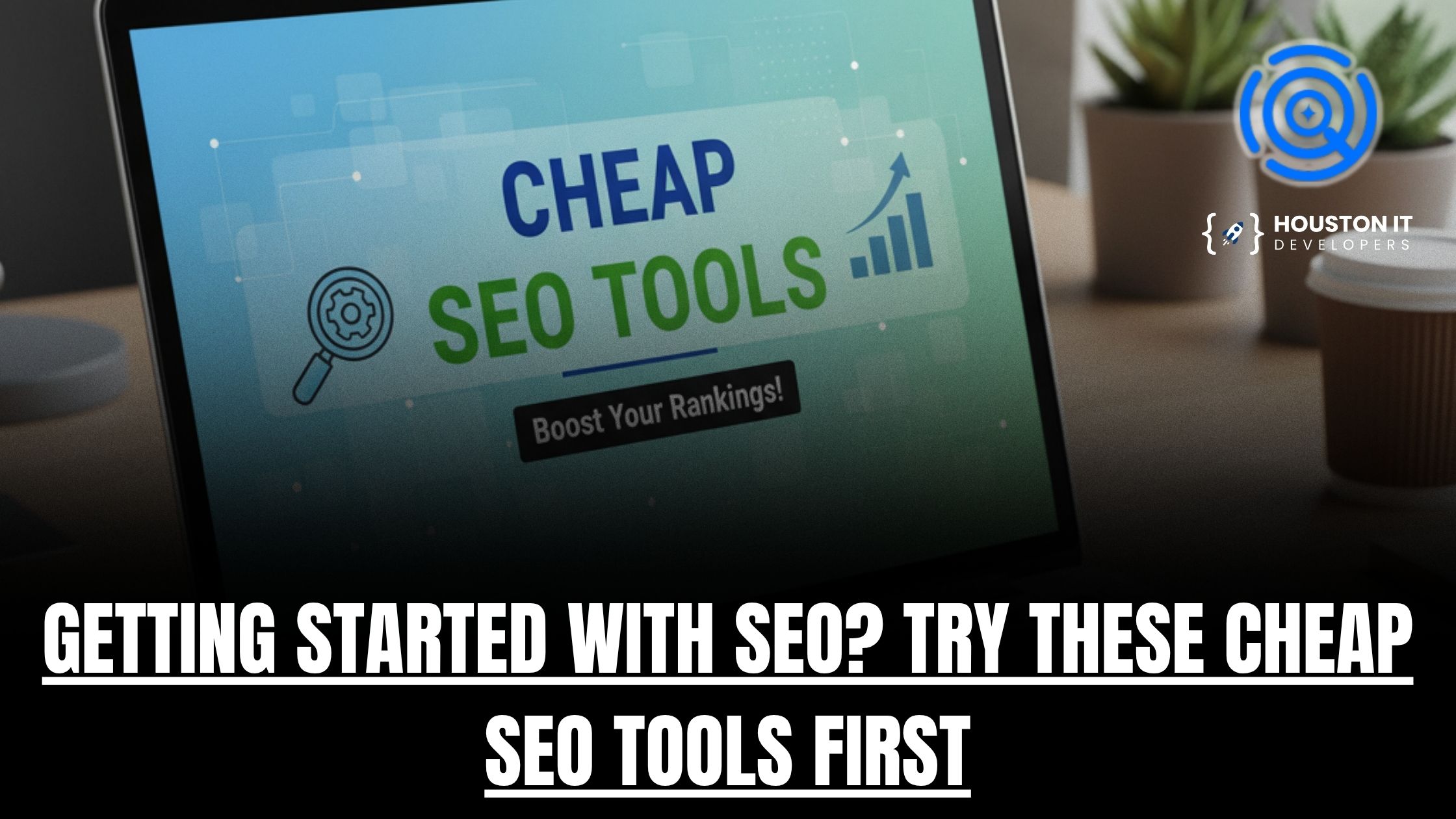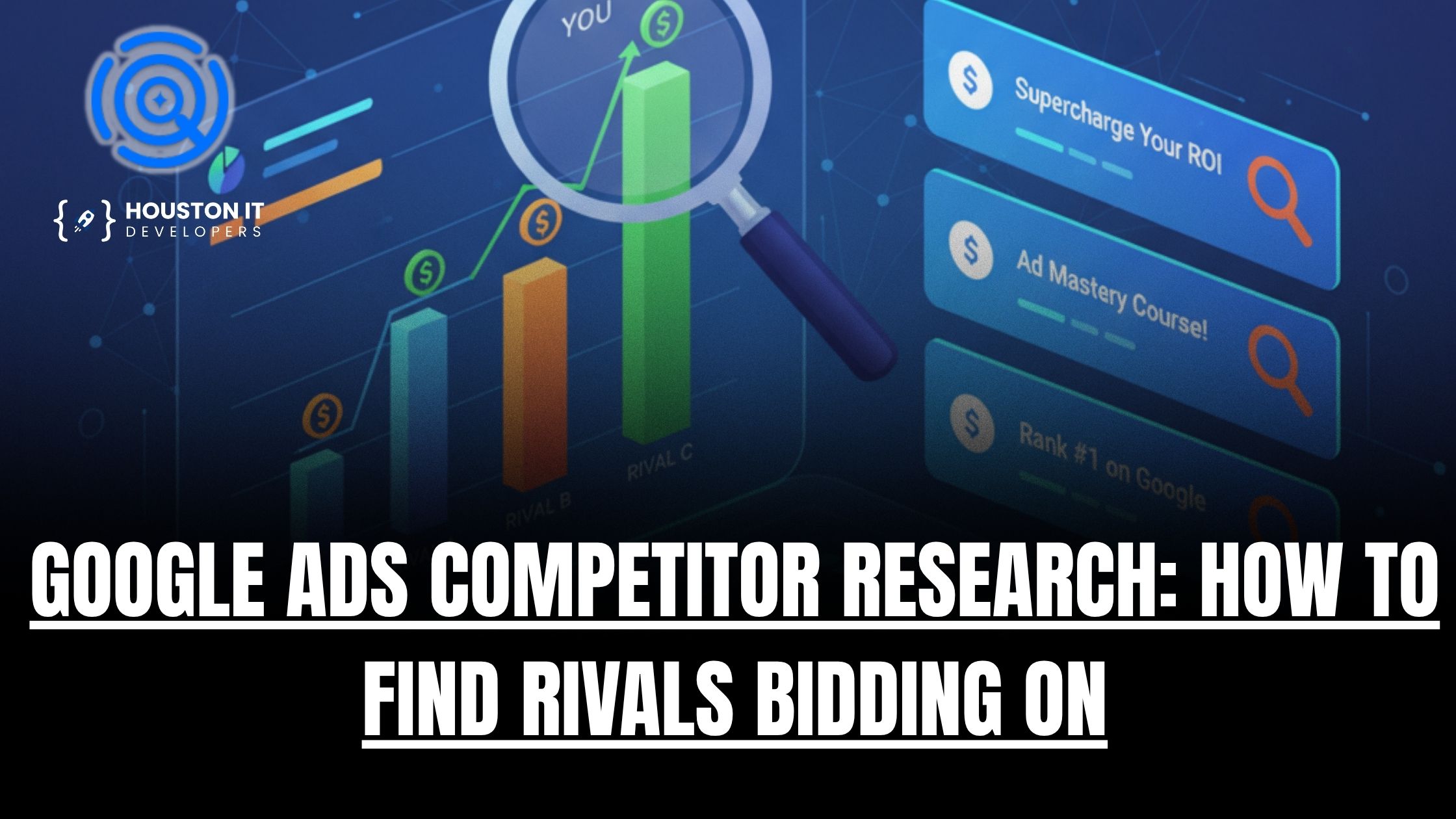What’s the secret behind high-ranking content in today’s competitive search landscape? It’s not just about keywords—it’s about knowing how to find SEO entities that search engines recognize and trust. With organic search driving over 53% of all web traffic, and SEO leads converting at 14.6%—far higher than outbound marketing—understanding and using entities has become critical for success.
The problem? Manually identifying relevant entities is time-consuming and often incomplete. That’s where AI tools for SEO come in. With the best AI SEO tools, you can uncover related entities, semantic connections, and contextual relevance faster and more accurately than ever before.
In this blog post, we’ll break down what SEO entities are, compare traditional vs. AI-powered methods, and show you exactly how to use OnpageSEO.ai to find and apply the right entities. You’ll also get practical tips on how to find related entities SEO professionals use to boost rankings and relevance.
What Are SEO Entities and Why Do They Matter?
Understanding how to find SEO entities is crucial for staying competitive in search rankings. An SEO entity refers to a specific, identifiable concept—such as a person, location, brand, product, event, or abstract idea—that search engines can recognize and categorize.
Unlike traditional keywords, which focus solely on matching phrases, entities help search engines understand the deeper meaning behind content. For instance, the word “Apple” could refer to a fruit, a tech company, or even a music label. It’s Google’s job—using its knowledge graph and natural language processing (NLP)—to determine which entity fits based on context.
Why SEO is Important?
Using the right entities helps Google connect your content to relevant topics, improving visibility and credibility. That’s why SEOs are increasingly turning to AI tools for SEO to streamline this process and surface the most valuable entities.
Here’s why entities matter for SEO:
- Semantic clarity: Entities help search engines understand the true topic of your content, even when exact keywords are not present.
- Contextual relevance: Optimizing for SEO ensures your content aligns with user intent and related topics.
- Improved indexing: Google’s algorithms use SEO entities to organize and categorize content more accurately.
- Stronger topical authority: Covering related SEO entities signals expertise in a subject area, which improves trust and rankings.
- Rich SERP features: Pages with strong SEO entity associations are more likely to earn features like knowledge panels and related questions.
With entities playing such a central role in content discovery, knowing how to find related entities SEO professionals use has become a critical skill. While manual research is possible, the best AI SEO tools—like OnpageSEO.ai—make the process faster, more accurate, and scalable. By incorporating the right entities into your content, you strengthen both your on-page SEO and your site’s overall semantic relevance.
Traditional vs AI-Powered Methods of Finding SEO Entities
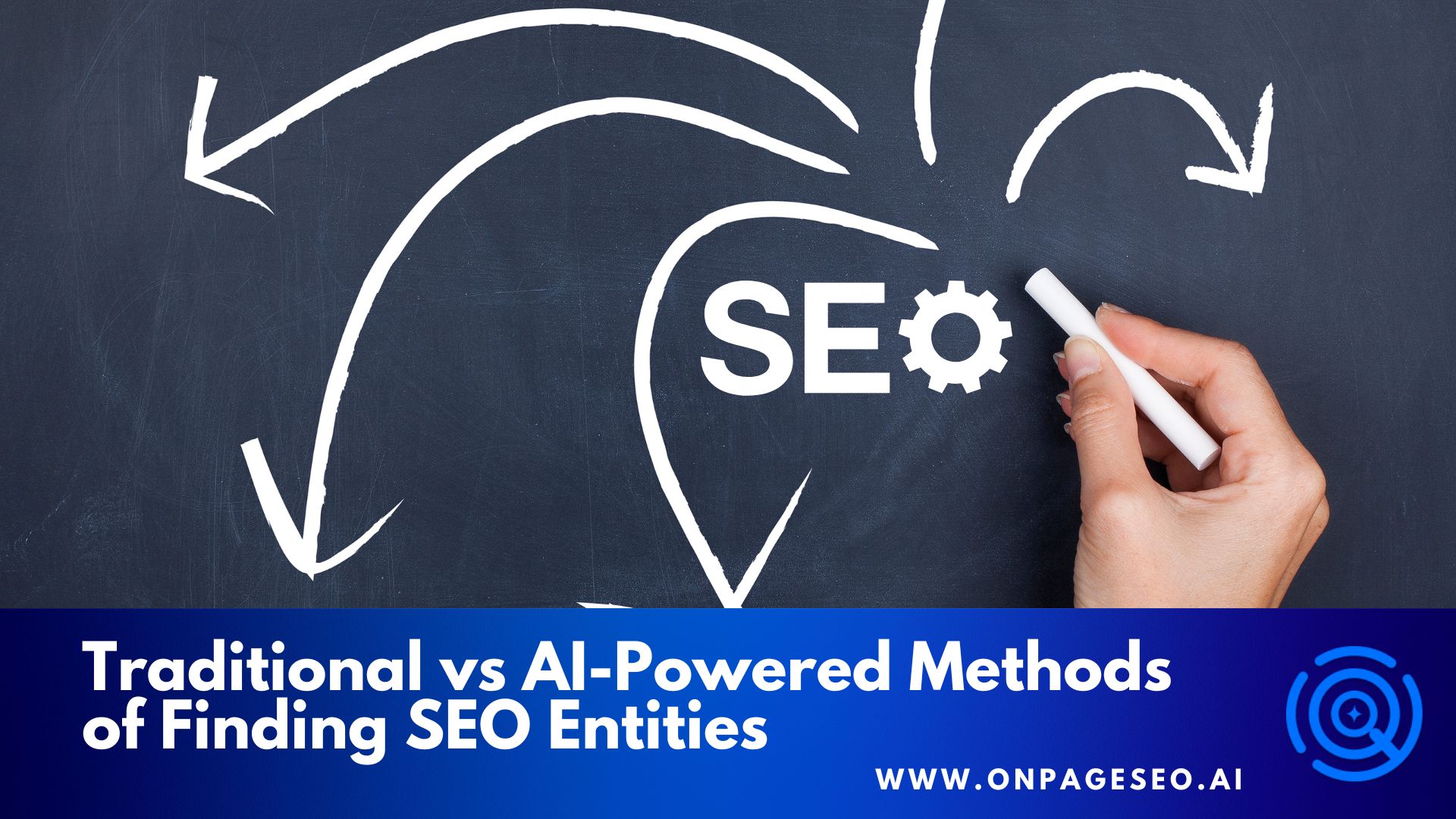
Before the rise of AI-driven solutions, SEOs had to manually identify relevant entities by digging through competitor content, scouring Wikipedia pages, and experimenting with Google’s Natural Language Processing (NLP) API. This traditional method, while useful to an extent, was labor-intensive, inconsistent, and often missed crucial semantic relationships—especially when dealing with niche or emerging topics. It also required a deep understanding of linguistics and structured data, which many content creators lacked.
Now, thanks to AI tools for SEO, the process of discovering and integrating entities is faster, more accurate, and far more scalable.
Here’s how modern AI tools outperform traditional methods and empower marketers with powerful automation:
- Generate entity-rich SEO titles and meta descriptions – Tools like OnpageSEO.ai use AI to suggest titles and descriptions that naturally include contextually relevant terms. These snippets not only improve CTR but also reflect semantic relationships that search engines recognize.
- Suggest semantically related terms – Instead of guessing which supporting terms to use, AI suggests synonyms, variations, and contextually linked phrases that enhance content depth and relevance. This goes beyond simple keyword matching to create more meaningful content.
- Map entities to user search intent – The best AI SEO tools don’t just list entities—they interpret how those entities relate to specific search queries. This helps you align content with the informational, transactional, or navigational intent behind a user’s search.
- Surface LSI (Latent Semantic Indexing) keywords automatically – AI uncovers LSI keywords that Google uses to understand page topics. Including these keywords helps establish topical authority and can increase the chance of ranking for a wider range of relevant queries.
If you’re serious about how to find SEO entities and stay ahead in search, relying on AI is no longer optional—it’s essential.
How to Use OnpageSEO.ai to Identify SEO Entities

Identifying SEO entities doesn’t have to involve complex research or technical guesswork. With OnpageSEO.ai Chrome Extension, you can streamline the process and surface entity-aligned opportunities directly from your browser. This AI-powered Chrome extension simplifies on-page analysis by breaking down every SEO component—titles, meta descriptions, headers, links, images, and keywords—into actionable, colour-coded insights.
Here’s how to use OnpageSEO.ai to support entity discovery and optimization:
- Run an Instant On-Page SEO Audit
With just one click, get a health score and AI-powered recommendations. The audit reviews your title, meta description, header structure, links, images, and keywords—all areas where entities often appear and should be optimised. - Use the AI Title & Meta Generator
OnpageSEO.ai analyses your page content and auto-generates entity-rich SEO titles and meta descriptions. This helps you align metadata with search intent and semantic relevance without needing to guess what Google wants. - Analyse Headers and Structure – The interactive header structure map shows all your H1 to H6 tags in order. Since entities are often embedded in headings, this feature makes it easy to scan and adjust them for topical relevance.
- Leverage Keyword Density Tools – View keyword distribution, density percentages, and sort by count or phrase. This helps surface recurring terms and potential SEO entities you may not have explicitly targeted.
- Export Keyword Data – You can export your keyword insights to CSV for deeper analysis or use them to map out related entities manually or via other tools.
While OnpageSEO.ai doesn’t label entities explicitly, its powerful analysis features uncover where entities should appear and how to optimize around them. For anyone learning how to find SEO entities, this tool bridges the gap between data and action—making it easier to create contextually rich, entity-aligned content that ranks.
To understand why this type of optimization is foundational, explore why every website needs an on page SEO analysis tool.
Tips for Implementing Entities into Your Content
Knowing how to find SEO entities is only half the equation—the real impact comes from using them strategically within your content. SEO entities act as semantic signals to search engines, helping them interpret your content’s meaning, context, and relevance to specific queries. Whether you’re building new pages or updating existing ones, entity implementation can dramatically improve both rankings and user engagement when executed properly.
Here are actionable tips for applying entities effectively:
Integrate Entities Naturally
Avoid forcefully inserting entities into your text. Instead, work them into sentences in a way that feels organic and informative. For example, instead of repeating the same term, use entity variations and related concepts that support the flow of your content. Natural inclusion improves readability while signalling topical authority to search engines.
Use Headers and Structured Data
Entities placed in H2s and H3s often carry more weight because they define the topical structure of your page. Reinforce this by adding schema markup—like FAQ Page, Product, or Article schema—to explicitly tell search engines what your page is about. Tools like OnpageSEO.ai Chrome Extension can help you audit and improve header structure quickly.
Diversify Content Types
Don’t just mention entities in your blog post body. Include them in FAQs, product descriptions, alt texts, bullet lists, and metadata. This consistent reinforcement across multiple content elements strengthens your perceived expertise and semantic coverage.
Map to Search Intent
Think beyond just “how to find related entities SEO.” Match the entity’s context to the user’s intent. For example:
- If the entity is transactional (e.g., a product or service), include modifiers like buy, pricing, reviews, or discounts.
- For informational content, target phrases like how to, pros and cons, or comparison.
- For navigational queries, include branded terms or related subcategories.
Update Existing Content Regularly
Many older pages lack modern entity optimization. Use AI tools for SEO, like OnpageSEO.ai, to perform a fresh audit and identify missing or misaligned entities. Revise these pages to reflect updated search behavior, competitive insights, and new semantic signals.
When implemented strategically, entities don’t just boost rankings—they improve comprehension, clarify relevance, and create a better experience for readers. With the help of the best AI SEO tools, entity optimization becomes faster, smarter, and more precise than ever.
For a deeper look at how today’s algorithm updates are shaping content strategy, explore on page SEO factors for 2025 what’s changed and still matters.
FAQs
How to find entities in SEO?
To find entities in SEO, start by analyzing high-ranking pages in your niche and identifying recurring concepts, terms, and names. These often represent entities like brands, products, locations, or technical topics. You can use AI tools for SEO—such as OnpageSEO.ai—to extract these key elements more efficiently. The best AI SEO tools analyze your content and competitor pages to surface semantically relevant entities, helping you align better with user intent and Google’s understanding of the topic.
What is a SEO entity?
An SEO entity is a specific, identifiable concept or object that search engines recognize and understand. This could include a company name, person, product, topic, or location. Unlike basic keywords, entities are tied to meaning, not just language. For instance, “Apple” as a fruit and “Apple Inc.” as a tech company are two different entities, even though the keyword is the same. Optimizing around the right entities helps clarify your content’s context and boosts its relevance in search engine results.
How to find the SEO of a website?
To check the SEO of a website, you can use on-page SEO analysis tools that evaluate critical elements like meta tags, keyword usage, header structure, internal links, and technical SEO issues. Platforms like OnpageSEO.ai allow you to perform instant audits directly from your browser. These audits highlight where your site stands and what improvements can be made to increase visibility and rankings.
Final Thoughts on How to Find SEO Entities Quickly with AI Tools
Mastering how to find SEO entities is no longer optional—it’s a core part of effective content strategy. Entities help search engines understand your content’s meaning, align it with user intent, and rank it more accurately. While traditional methods are slow and often incomplete, AI tools like OnpageSEO.ai make entity discovery fast, actionable, and scalable.
To improve your SEO performance, start analysing your existing content for semantic gaps, optimise titles and headers with relevant entities, and use structured data to reinforce meaning. The next step? Put AI to work for you.
Download the OnpageSEO.ai Chrome Extension today to run instant on-page audits, surface SEO entities, and create content that ranks.
